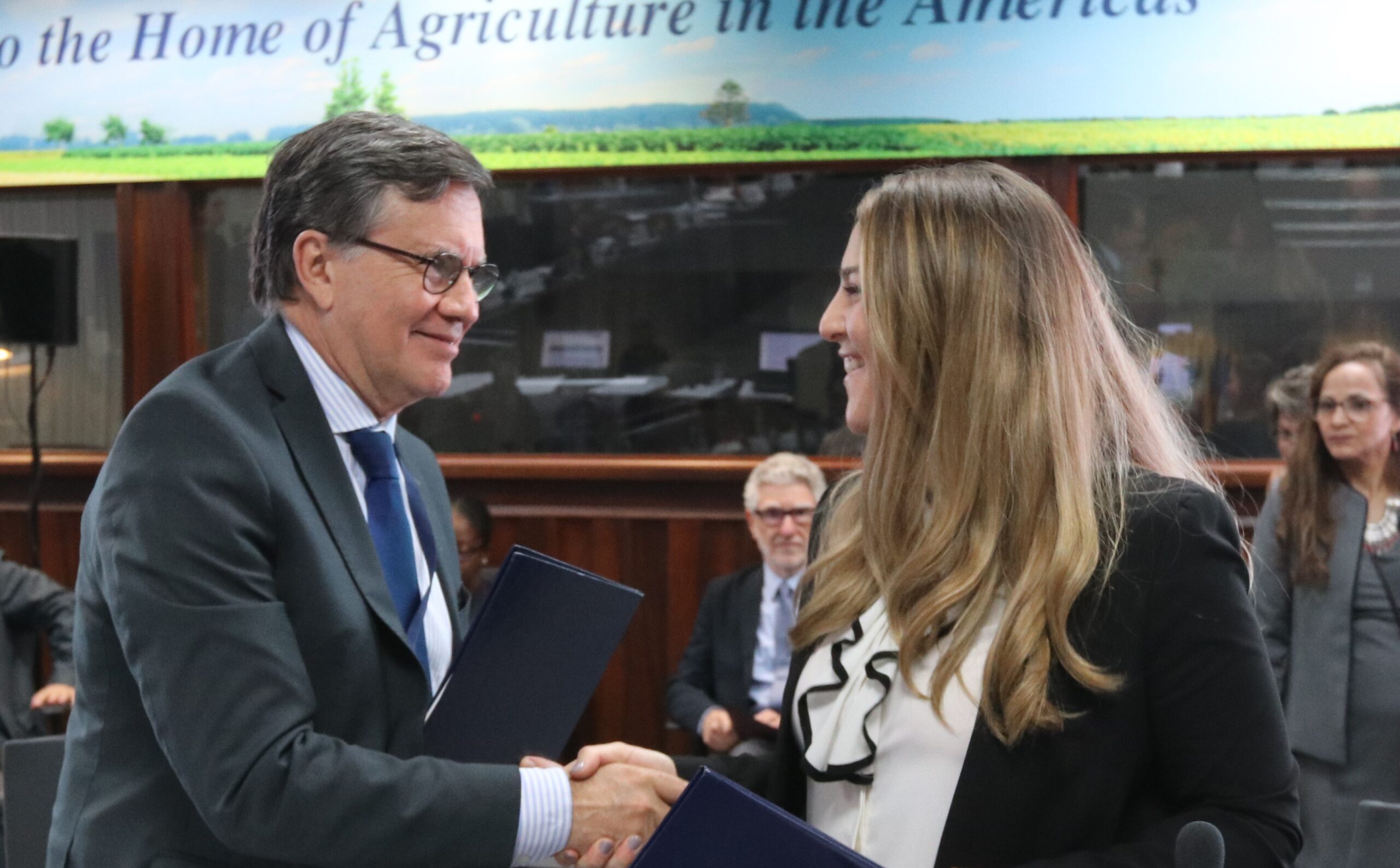The new agreements will strengthen IICA’s capacity to provide technical cooperation in matters related to agrotourism, rural youth, online training and agricultural research.

San Jose, 4 November 2019 (IICA) – CODESPA Foundation, the 4-H Clubs, the University of Costa Rica (UCR) and CENFOTEC University will develop technical cooperation projects in collaboration with the Inter-American Institute for Cooperation on Agriculture (IICA), with a view to driving the development of agriculture and rural territories.
The agreements were formalized during the 2019 Conference of Ministers of Agriculture of the Americas, which was held in San Jose from 29 to 31 October and was attended by officials at the highest level of the agriculture sector of IICA’s 34 member countries.
The agreement signed with CODESPA Foundation of Spain is geared towards implementing projects to develop rural markets and agrotourism.
“We have been implementing these types of projects in the Americas for 15 years. Our goal in partnering with IICA is to generate a greater impact in the region,” explained Michelle Riestra, Executive Director for CODESPA America.
On the other hand, the agreement with 4-H will seek to bolster the capacities of young rural leaders, in order to accelerate the modernization of agriculture and the improvement of living conditions in rural areas.
4-H, which is administered by the U.S. Department of Agriculture (USDA), is the largest youth development organization in the United States.
The objective of IICA’s agreements with the University of Costa Rica (UCR) and CENFOTEC University is to strengthen the capacity-building opportunities they offer through courses, workshops and forums, as well as to develop online training strategies by capitalizing on the Institute’s extensive e-learning platform.
The agreement with CENFOTEC will foster the digital inclusion of rural youth and women as well as democratize the use of technologies, information and knowledge.
IICA and UCR will collaborate to strengthen joint technical cooperation and research capabilities in the fields of innovation, bioeconomy, agricultural health, food safety and quality, as well as climate change and food security.
“We cannot make progress on our own; strategic partnerships are crucial to improving the quality of life and well-being of rural dwellers across the Americas,” remarked Manuel Otero, Director General of IICA.
More information:
Institutional Communication Division, IICA
comunicacion.institucional@iica.int











